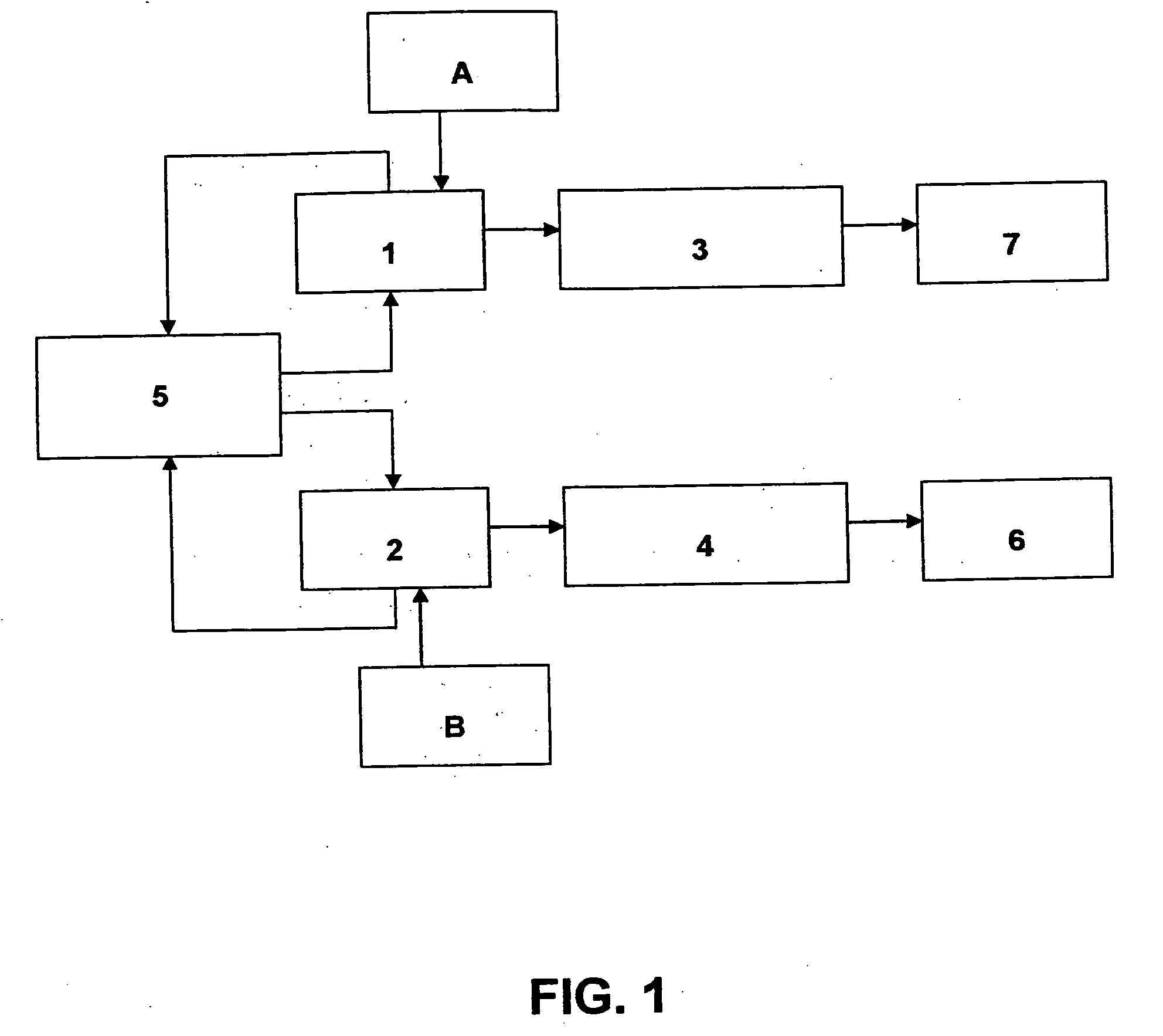Catalytic cracking process for production of diesel from seeds of oleaginous plants
a technology of catalytic cracking and diesel oil, which is applied in the direction of fatty acid chemical modification, hydrocarbon oil treatment products, and treatment with plural parallel stages only, etc., and can solve the problems of low cetane number, unsuitable for diesel use, and different suitability for gas oil processing or residues
- Summary
- Abstract
- Description
- Claims
- Application Information
AI Technical Summary
Benefits of technology
Problems solved by technology
Method used
Image
Examples
Embodiment Construction
[0021]The principal objective of the present invention is the production of biodiesel utilising a vegetable charge made from seeds of oleaginous plants which is submitted to a process of fluid catalytic cracking, or FCC, for the production of the said biodiesel.
[0022]The present invention represents a fluid cracking process for production of diesel from seeds of oleaginous plants, preferably castor beans, they being crushed with a liquid fluid, preferably water, then being pumped to the separate riser or downflow reactor.
[0023]The present invention defines the utilisation of one of such reactors for processing conventional FCC charges, generating desirable products such as petrol, propene and other light olefins which may be maximised in such reactor operating under conventional conditions at reaction temperatures exceeding 490° C., whilst seeds of oleaginous plants, preferably castor beans, crushed with a liquid fluid, preferably water, may be processed in a second parallel reactor...
PUM
| Property | Measurement | Unit |
|---|---|---|
| temperatures | aaaaa | aaaaa |
| temperatures | aaaaa | aaaaa |
| cetane number | aaaaa | aaaaa |
Abstract
Description
Claims
Application Information
 Login to View More
Login to View More - R&D
- Intellectual Property
- Life Sciences
- Materials
- Tech Scout
- Unparalleled Data Quality
- Higher Quality Content
- 60% Fewer Hallucinations
Browse by: Latest US Patents, China's latest patents, Technical Efficacy Thesaurus, Application Domain, Technology Topic, Popular Technical Reports.
© 2025 PatSnap. All rights reserved.Legal|Privacy policy|Modern Slavery Act Transparency Statement|Sitemap|About US| Contact US: help@patsnap.com

